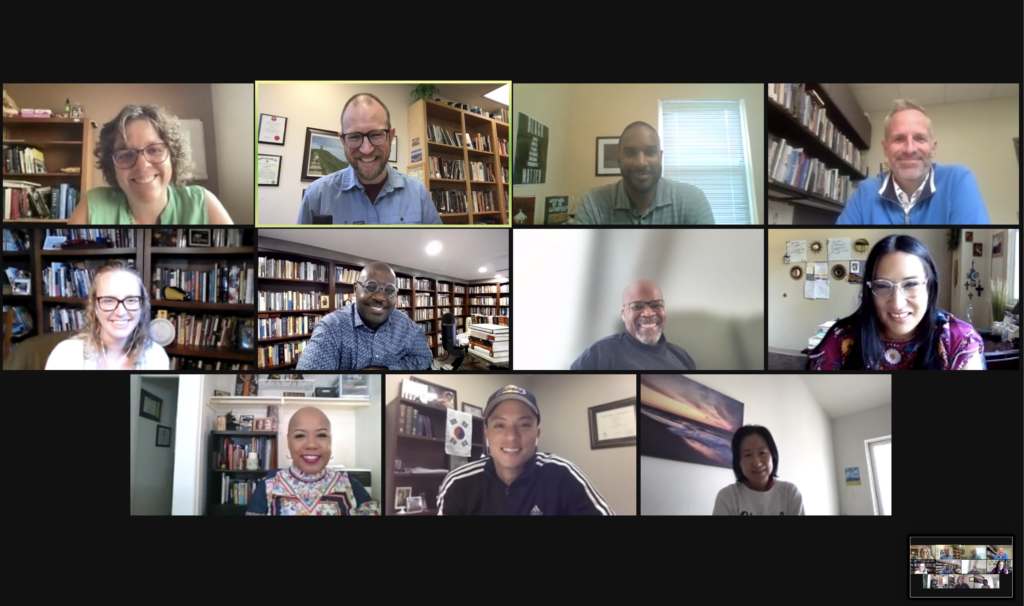October 8-9, 2021
Virtual Meeting

The ten members of the Lift Every Voice and Teach workgroup gathered for the first time, over Zoom, on October 8 and 9, 2021. With the Delta variant spiking across the country, what during the summer had seemed like an unnecessary precaution turned out to be a prudent decision. Coming from a range of disciplines (including history, sociology, English, theology, and Biblical studies), everyone shared their experiences of the perennial as well as of the new challenges of teaching race in the classroom.
Dr. Willie James Jennings led the group in a three-hour seminar, which considered how insights from his recent book After Whiteness: An Education in Belonging, about theological education in seminaries, can transform our understanding of our vocation and practices in the undergraduate context. Willie inspired us to reflect on how our classrooms can become redemptive spaces. You can watch his 16-minute opening remarks here.
One of the key goals of the Lift Every Voice and Teach workgroup is to host a colloquium in spring 2023 in order to share our work and invite 20 additional colleagues into the conversation. First though, the smaller October 8-9 meeting allowed us to collaboratively set the course for the next two years by identifying five crucial areas of teaching race in Christian and church-related undergraduate college settings. These topics are:
- Structural Change
Beyond Institutional Performative Unity: Building a more diverse, inclusive, and equitable Christian higher education, with a specific focus on self-care and racial healing for faculty of color - Christian Perspectives
Christian Perspectives on Teaching Race: An apologetics for teaching about race and white supremacy in the classroom - Narratives
Re-Thinking Our Own Narratives: Telling more truthful stories about positionality and race - Diverse Classrooms
Teaching Race in Diverse Classrooms: Approaches that teach to all students in the room, minimizing hurt and seeking redemptive possibilities for all constituencies - Positionality of Faculty Teaching Race
Recognizing power and the possibilities to decolonize, diversify, and amplify unheard voices
